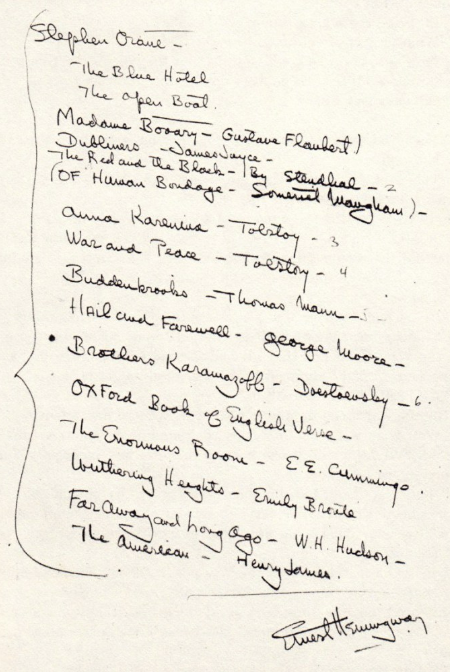FatCat
 Maester
Maester
Write you're reply, an elegant answer to your question by a prompt. Write your reply to your character, why are they important? What ideal makes them different? How do you feel? Do they feel the same?
 Maester
Maester Istar
IstarIn defence of mr. King, he actually put himself in the second group of writers who were decent and through hard work got pretty good.Yeah, he also says something about how some people are born writers and some people aren't, and if you aren't born a writer it doesn't matter how hard you try, you'll never make it; an attitude I neither agree with nor particularly respect.
Ironic coming from someone famous for their "nail stuffed with rejection slips," and a bit of a heartless self-indulgence when one is looking down from the top.
The thing is with the Bronte sisters, they got their practice in early. They started writing stories at an early age and got good feedback on them. So they got their 10.000 hours of practice in before anyone could notice them. There's no magic there. Just a lot of hard work at an early age.I’d say that you can see this if you compare the Brontë sisters to Jane Austen. The Brontë’s displayed a savant like talent rare in most people whereas Jane was always more practiced and restrained. But all basically very accomplished writers.
 Istar
IstarNo magic, but certainly savant like abilities. Looking at Emily Brontë specifically, whose own account for her preferences might suggest that she was actually autistic. My own son who at nearly three is hyperlexic, meaning he can read and do things that are beyond his years, but he has other areas with deficits. Certainly for the Brontë sisters having access to pen and paper and the time to pursue these hobbies were also paramount to their practicing their art.The thing is with the Bronte sisters, they got their practice in early. They started writing stories at an early age and got good feedback on them. So they got their 10.000 hours of practice in before anyone could notice them. There's no magic there. Just a lot of hard work at an early age.
 Istar
IstarI’ve changed my viewpoint on the whole Mary Sue / Gary Stu thing. There are some great examples of authors writing Mary Sue’s who have written iconic works - Jane Eyre being one prime example. I think if the author is still creating a characters with realistic flaws and giving me a good story then it does not bother me. It only becomes boring when the MC can do no wrong, and they’re brilliant at everything, and oh, they’re going to save the world.There's a lot of people who read fantasy and want to write their own, but can't be anything other than the MC in their own mind. Good riddance imo
 Myth Weaver
Myth Weaver Maester
MaesterThat is what a Mary Sue is. If it's done well, I don't think it's a Mary Sue.It only becomes boring when the MC can do no wrong, and they’re brilliant at everything, and oh, they’re going to save the world.
 Auror
Auror Myth Weaver
Myth Weaver
 Istar
Istar Maester
Maester Istar
Istar Myth Weaver
Myth Weaver Istar
Istar Myth Weaver
Myth Weaver Dreamer
Dreamer Myth Weaver
Myth Weaver Dreamer
DreamerBlogger I knew for a while, not any kind of big name. Think she writes under a pseudonym. It's possible she got it frm Faulkner.Usually that one goes to Faulkner.... Kristen Stewart?
 Auror
Auror Auror
AurorThis is similar to my experience. My first novel is basically a poor story that is fairly well written. Not doing that again!Reflecting on this... and looking back over what I regard as my writing development, trying to make every line zing when I first started was a big mistake.
Now I try to make every chapter zing but every line is exhausting - for both writer and reader. There has to be a comfortable matrix of prose or the real gems don't stand out.
 Auror
AurorMy sister described my first (never published) book as one long poem.This is similar to my experience. My first novel is basically a poor story that is fairly well written. Not doing that again!